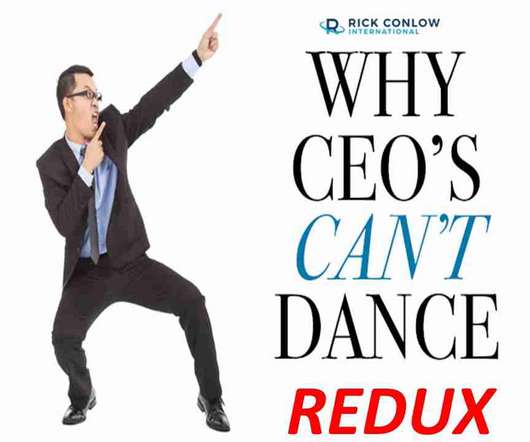Why CEOs Can’t Dance Redux
Rick Conlow
JANUARY 2, 2023
They operate in a bubble and do not attend the party. CEOs focus on data, facts, figures, and metrics. As an employee, I am sure you can identify with the poor communication you have seen from your employers related to expectations, priorities, medical benefits, lack of recognition, policy changes, and work procedures.











Let's personalize your content